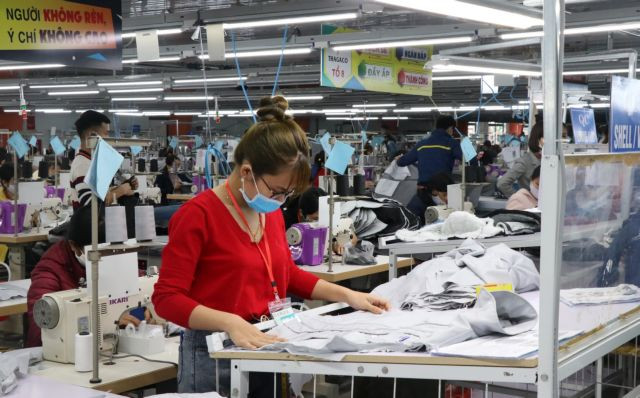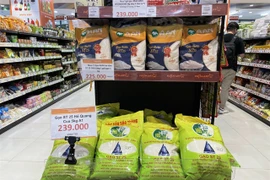The latest data of the General Department of Vietnam Customs shows Vietnamshipped 92.4 million USD worth of garment products to the UK in August, up 3%month-on-month and up 88.6% over the same month in 2021.
Ending August, the country's garment export reached 560.4 million USD,registering a year-on-year growth of 45%.
The figure for the whole industry was 26.3 billion USD in the past eightmonths, up 24.3% over the same period of last year.
According to Vietnam Textile and Apparel Association's vice chairman Truong VanCam, despite challenges in some main exporting markets, Vietnam's textile and garmentindustry is set to earn 45 billion USD in exports in 2022 compared to 40.3billion USD last year.
Vietnam is currently the world's third largest exporter in this sector. Itsmain markets include the US, the Republic of Korea, Japan and Europe.
Cam said the industry is facing many difficulties at the end of this year,including steep fall in export orders due to soaring inflation in major marketsand rising input cost. China's strict pandemic control, where more than 50% ofraw materials for the Vietnamese textile and garments are sourced, has pushedup input costs.
In addition, the EU introduced new regulations on the textile industry,including replacement rates, green products and switching from fast fashion tosustainable fashion, which makes it harder for Vietnamese apparel productsenter this region.
In this context, the UK is emerging as a promising market. Research by Kantarfrom the Guardian shows that despite rising living costs, UK shoppers arespending more on clothing, defying expectations of a slowdown in non-essentialproducts.
Kantar's data showed Brits are spending almost a fifth more on clothing thanlast year, taking the value 1% ahead of the pre-pandemic figure.
The UK is among the top 10 largest markets for Vietnam's garment export, with avalue of around 600 million USD in 2021, accounting for less than 2% of Vietnam'stotal export value. However, with the advantage of lower tariffs thanks to theUKVFTA, Vietnam has a big chance to expand its market share.
Under UKVFTA, about 42.5% of Vietnamese textile and garment exports will beliberalised at entry into force, while some garment products will see tariffseliminated after six years.
However, according to market insiders, Vietnamese exporters should strictlycomply with the UK's requirements on the origin of products and other technicalbarriers such as input materials, labour and environment./.






























